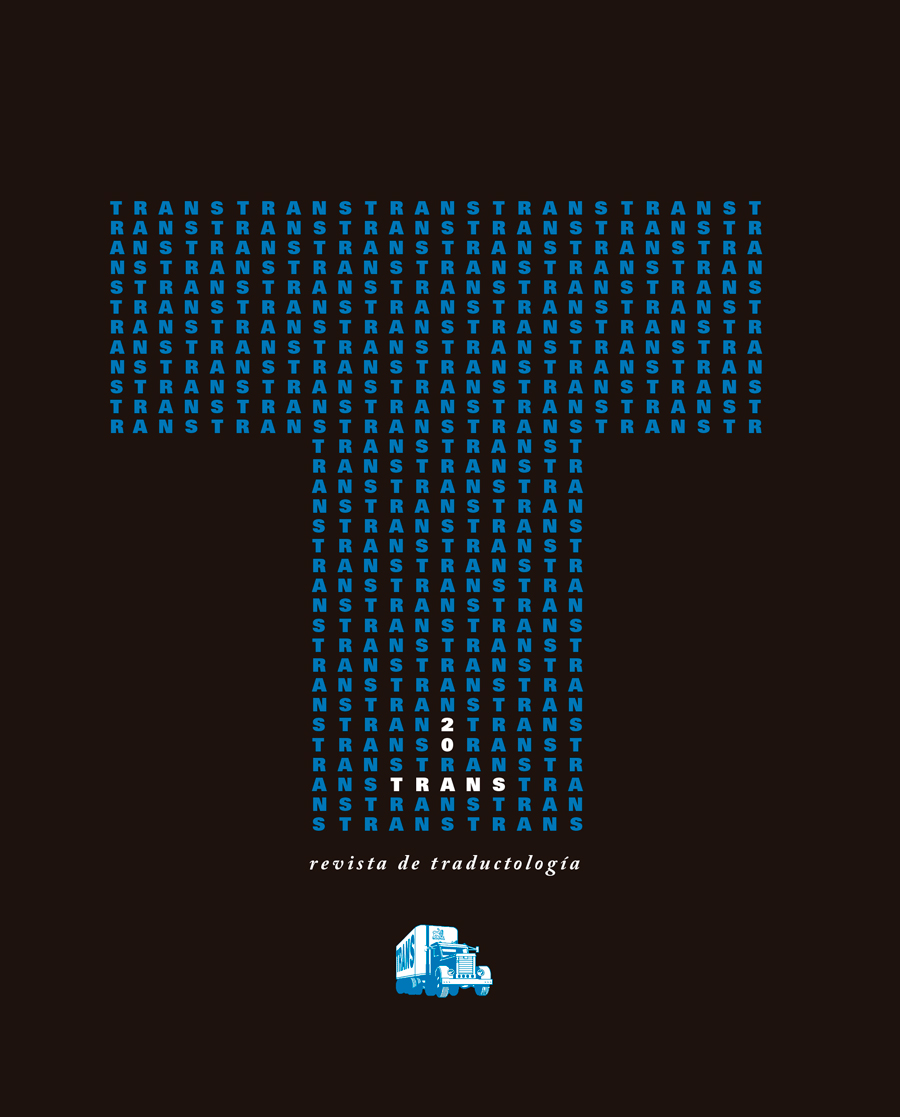The intercultural competence in the translator’s profession: A translator training approach and the presentation of a case study
DOI:
https://doi.org/10.24310/TRANS.2016.v0i20.2064Keywords:
translation, translator training, intercultural competence (IC), professional translatorAbstract
This piece of work originates in the field of Translation and Interpreting (TI) studies and it is framed within the area of translator training in Spain. The findings we present here constitute a specific part of our PhD research project, whose general objective is to promote the intercultural competence acquisition of translation students. This paper gathers empiric and descriptive data about professional translators’ perceptions on the role of the cultural element and the IC in their daily work. Quantitave and qualitative methods (questionnaires and interviews) were employed although the general focus of the study is mainly qualitative. The aim of the research is to describe the actual implications of culture in the translator’s job so improvements in translator training may be introduced and the gap between academic training and profession may be reduced (Kelly, 2005; Katan, 2009b; Pym et al. 2012).Downloads
Metrics
Publication Facts
Reviewer profiles N/A
Author statements
Indexed in
-
—
- Academic society
- N/A
- Publisher
- Universidad de Málaga
Downloads
Published
How to Cite
Issue
Section
License
All contents published in TRANS. Revista de Traductología are protected under the Creative Commons Attribution-NonCommercial-ShareAlike 4.0 International (CC BY-NC-SA 4.0) license. All about this license is available in the following link: <http://creativecommons.org/licenses/by-nc-sa/4.0>
Users can copy, use, redistribute, share and exhibit publicly as long as:
- The original source and authorship of the material are cited (Journal, Publisher and URL of the work).
- It is not used for comercial purposes.
- The existence of the license and its especifications are mentioned.
- ShareAlike — If you remix, transform, or build upon the material, you must distribute your contributions under the same license as the original.
There are two sets of authors’ rights: moral and property rights. Moral rights are perpetual prerogatives, unrenounceable, not-transferable, unalienable, imprescriptible and inembargable. According to authors’ rights legislation, TRANS. Revista de Traductología recognizes and respects authors moral rights, as well as the ownership of property rights, which will be transferred to University of Malaga in open access.
The property rights are referred to the benefits that are gained by the use or the dissemination of works. TRANS. Revista de Traductología is published in an open access form and it is exclusively licenced by any means for doing or authorising distribution, dissemination, reproduction, , adaptation, translation or arrangement of works.
Authors are responsable for obtaining the necessary permission to use copyrighted images.













21.png)
